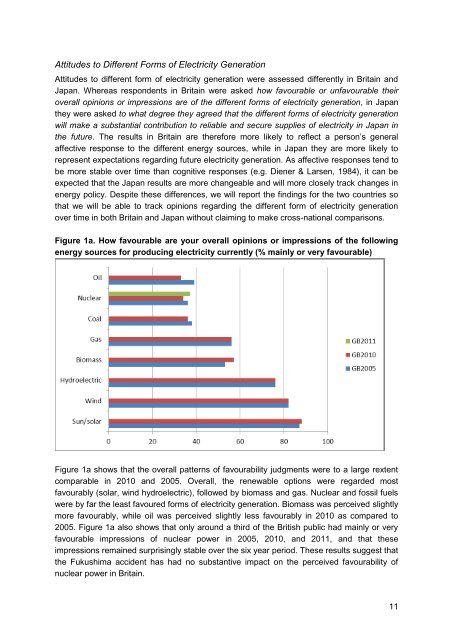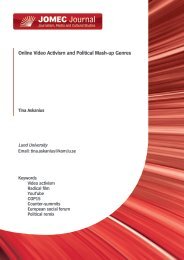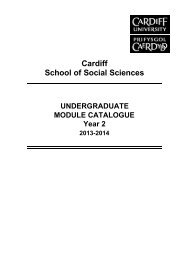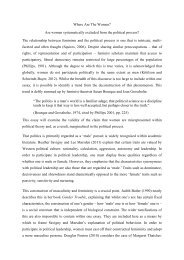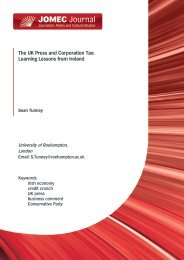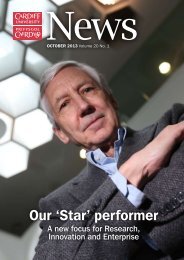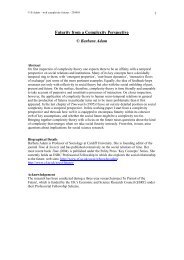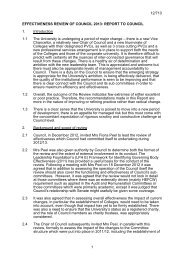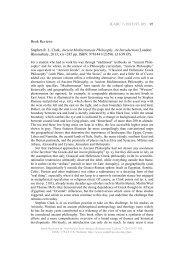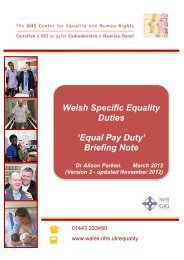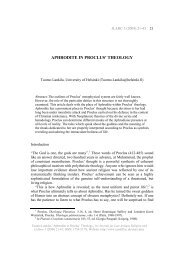Public Perceptions of Climate Change and ... - Cardiff University
Public Perceptions of Climate Change and ... - Cardiff University
Public Perceptions of Climate Change and ... - Cardiff University
Create successful ePaper yourself
Turn your PDF publications into a flip-book with our unique Google optimized e-Paper software.
Attitudes to Different Forms <strong>of</strong> Electricity Generation<br />
Attitudes to different form <strong>of</strong> electricity generation were assessed differently in Britain <strong>and</strong><br />
Japan. Whereas respondents in Britain were asked how favourable or unfavourable their<br />
overall opinions or impressions are <strong>of</strong> the different forms <strong>of</strong> electricity generation, in Japan<br />
they were asked to what degree they agreed that the different forms <strong>of</strong> electricity generation<br />
will make a substantial contribution to reliable <strong>and</strong> secure supplies <strong>of</strong> electricity in Japan in<br />
the future. The results in Britain are therefore more likely to reflect a person’s general<br />
affective response to the different energy sources, while in Japan they are more likely to<br />
represent expectations regarding future electricity generation. As affective responses tend to<br />
be more stable over time than cognitive responses (e.g. Diener & Larsen, 1984), it can be<br />
expected that the Japan results are more changeable <strong>and</strong> will more closely track changes in<br />
energy policy. Despite these differences, we will report the findings for the two countries so<br />
that we will be able to track opinions regarding the different form <strong>of</strong> electricity generation<br />
over time in both Britain <strong>and</strong> Japan without claiming to make cross-national comparisons.<br />
Figure 1a. How favourable are your overall opinions or impressions <strong>of</strong> the following<br />
energy sources for producing electricity currently (% mainly or very favourable)<br />
Figure 1a shows that the overall patterns <strong>of</strong> favourability judgments were to a large rextent<br />
comparable in 2010 <strong>and</strong> 2005. Overall, the renewable options were regarded most<br />
favourably (solar, wind hydroelectric), followed by biomass <strong>and</strong> gas. Nuclear <strong>and</strong> fossil fuels<br />
were by far the least favoured forms <strong>of</strong> electricity generation. Biomass was perceived slightly<br />
more favourably, while oil was perceived slightly less favourably in 2010 as compared to<br />
2005. Figure 1a also shows that only around a third <strong>of</strong> the British public had mainly or very<br />
favourable impressions <strong>of</strong> nuclear power in 2005, 2010, <strong>and</strong> 2011, <strong>and</strong> that these<br />
impressions remained surprisingly stable over the six year period. These results suggest that<br />
the Fukushima accident has had no substantive impact on the perceived favourability <strong>of</strong><br />
nuclear power in Britain.<br />
11


